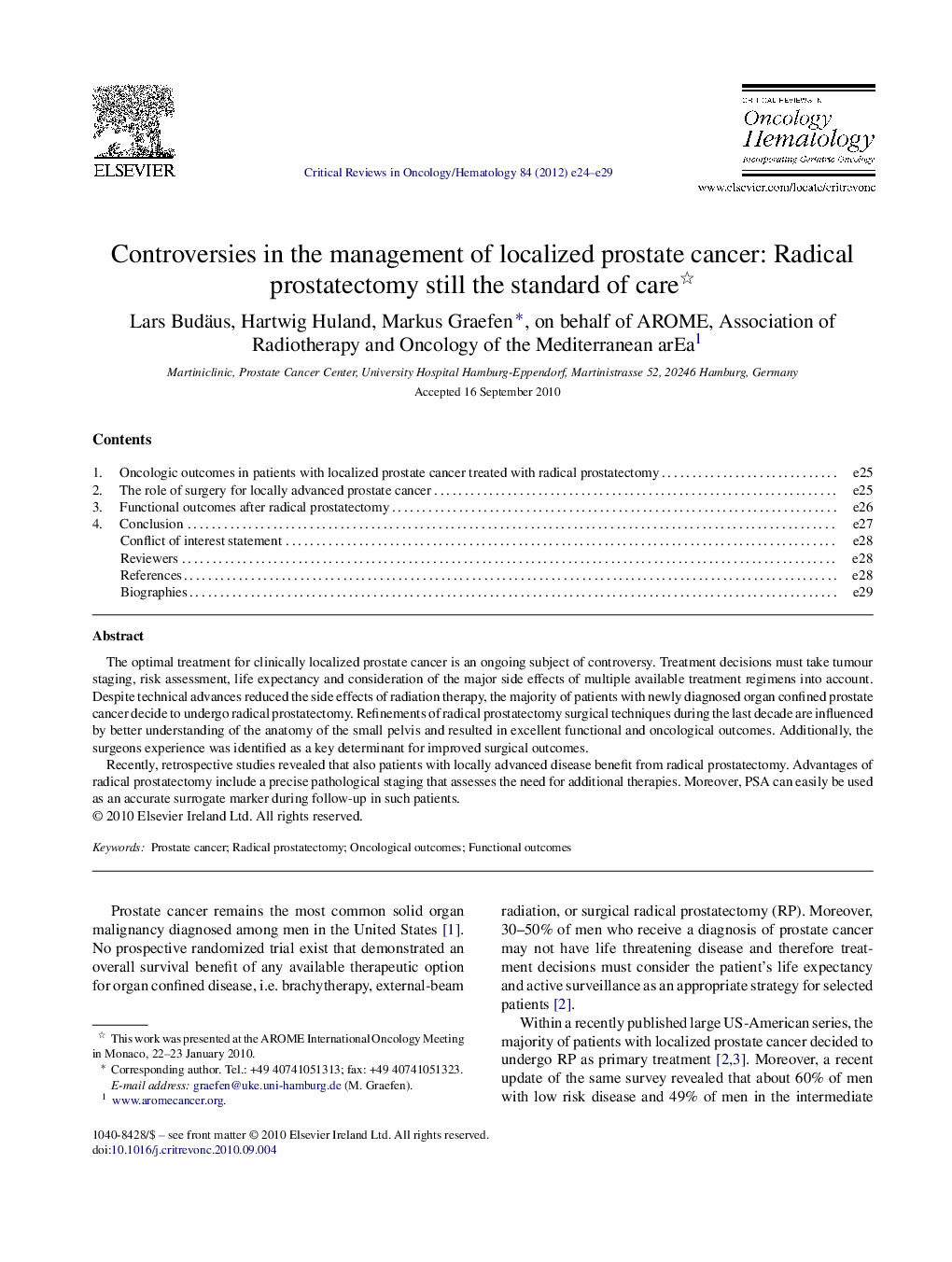| Article ID | Journal | Published Year | Pages | File Type |
|---|---|---|---|---|
| 3328963 | Critical Reviews in Oncology/Hematology | 2012 | 6 Pages |
The optimal treatment for clinically localized prostate cancer is an ongoing subject of controversy. Treatment decisions must take tumour staging, risk assessment, life expectancy and consideration of the major side effects of multiple available treatment regimens into account. Despite technical advances reduced the side effects of radiation therapy, the majority of patients with newly diagnosed organ confined prostate cancer decide to undergo radical prostatectomy. Refinements of radical prostatectomy surgical techniques during the last decade are influenced by better understanding of the anatomy of the small pelvis and resulted in excellent functional and oncological outcomes. Additionally, the surgeons experience was identified as a key determinant for improved surgical outcomes.Recently, retrospective studies revealed that also patients with locally advanced disease benefit from radical prostatectomy. Advantages of radical prostatectomy include a precise pathological staging that assesses the need for additional therapies. Moreover, PSA can easily be used as an accurate surrogate marker during follow-up in such patients.
